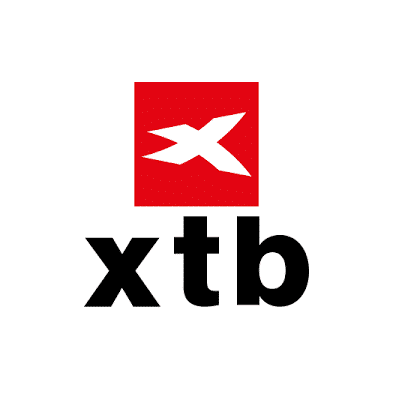The world of global trade and financial markets has become even more complex in recent months, particularly with renewed discussions around tariffs. If you’re wondering what’s happening, how it’s affecting the markets, and what you can do about it, you’re not alone. Let’s break it down.
70% of retail investor accounts lose money when trading CFDs with this provider. You should consider whether you can afford to take the high risk of losing your money.
What are these tariffs and why have they caused market turmoil?
Tariffs are essentially taxes placed on goods imported from other countries. Recently, there’s been a surge in attention around new U.S. tariff policies. A baseline 10% tariff was introduced across many goods, alongside the concept of “reciprocal tariffs” , higher rates intended for countries with which the U.S. has a trade deficit.
While these reciprocal tariffs have been paused for 90 days for most nations, uncertainty remains. China remains a key target. Under the current policy environment, tariffs on Chinese goods have soared to 125%. These measures aim to address long-standing concerns over unfair trade practices like intellectual property theft and forced technology transfer.
Tariffs rarely go unanswered. Other nations have responded with retaliatory measures against U.S. exports, a development that has particularly hit sectors like agriculture and manufacturing. Tariffs tend to fuel uncertainty and financial markets hate uncertainty. Their effects are visible across several key areas:
Stock market sell-offs
Following President Trump’s “Liberation Day” tariff announcement on April 2, 2025, the S&P 500 endured its worst two-day drop since the COVID-19 pandemic.
Spikes in volatility
Market fear indicators like the VIX soared during tariff announcements and policy shifts.
Sector-specific damage
Industries relying heavily on imports, such as manufacturing and technology, as well as those subject to retaliation, like agriculture, experienced significant losses.
Safe haven assets rally
In times of tariff-induced uncertainty, investors tend to flock to safer assets. Following the April 2nd announcement, gold prices initially surged, and there was increased demand for US government bonds.
However, signs of easing tensions can trigger quick rebounds. After a 90-day pause in certain tariffs was announced, markets rallied sharply, with the FTSE 100 climbing more than 6% in a single day. Still, these gains can be fragile if deeper tensions persist.
How XTB helps you stay confident during market swings
In times like these, a smart approach to investing and trading is essential and XTB gives you the edge you need.
XTB offers access to over 6,900 instruments including stocks, ETFs, commodities, indices, forex, Flexible Stocks & Shares ISA, 6,5 % interest on ISAs uninvested funds and more helping you spread risk effectively.
Open an account for free, start investing with as little as £10, and benefit from 0% commission on stock and ETF investing.*
You can also get real-time insights with XTB’s expert market analysis, a live economic calendar, and exclusive video updates from research director Kathleen Brooks. XTB’s comprehensive educational articles, covering essential topics like: How to hedge your portfolio , The role of volatility in markets and How to use stop-loss orders effectively are essential.
You can use powerful technical analysis indicators to quickly identify trends and trading setups and protect your capital with built-in stop-loss and take-profit features that help you lock in profits and limit losses.
Conclusion
As tariffs and trade tensions continue to reshape the financial landscape, having a reliable platform like XTB can make all the difference. Whether you’re navigating market volatility, seeking growth opportunities, or simply aiming to protect your portfolio, XTB provides the tools, education, and resources you need to invest smarter no matter what the market throws your way.
*For monthly turnover equivalent up to 100,000 EUR. Transactions above this limit will be charged a commission of 0.2% (minimum 10 GBP). 0.5% currency conversion cost may apply. Tax treatment depends on your individual circumstances and ISA regulations which may change. Your capital is at risk. The value of your investments may go up or down.T&Cs apply.
FAQs - Frequently Asked Questions
Tariffs are taxes on imported goods, often used as tools in trade negotiations. They can increase costs for businesses and consumers, disrupt supply chains, and trigger market volatility, which is why they often lead to sell-offs or shifts in investor sentiment.
Trade wars introduce economic uncertainty, which financial markets typically react to negatively. They can lead to sector-specific downturns (e.g., manufacturing, agriculture) and influence investor behavior, often causing a shift toward safe haven assets like gold or government bonds.
President Trump’s announcement introduced steep new tariffs and escalated trade tensions, particularly with China. This sudden policy shift triggered one of the worst two-day drops in the S&P 500 since the COVID-19 pandemic, showing how sensitive markets are to geopolitical developments.
Using tools like stop-loss orders, diversifying across asset classes, and staying informed through expert market analysis can help manage risk. Platforms like XTB offer access to these tools, plus educational resources and real-time updates to help you respond quickly.
XTB offers a wide range of instruments, commission-free investing, and advanced features like technical indicators and risk management tools. Its in-depth research and live analysis keep traders informed, helping them make smarter decisions during periods of market stress.
References
- The Guardian – “Sky-high US-China tariffs are a mutual trade embargo that will hurt both sides”
- Reuters – “Global banks cut China growth forecasts as trade war deepens”
- XTB – “Trade, invest and learn. All in one place.”

